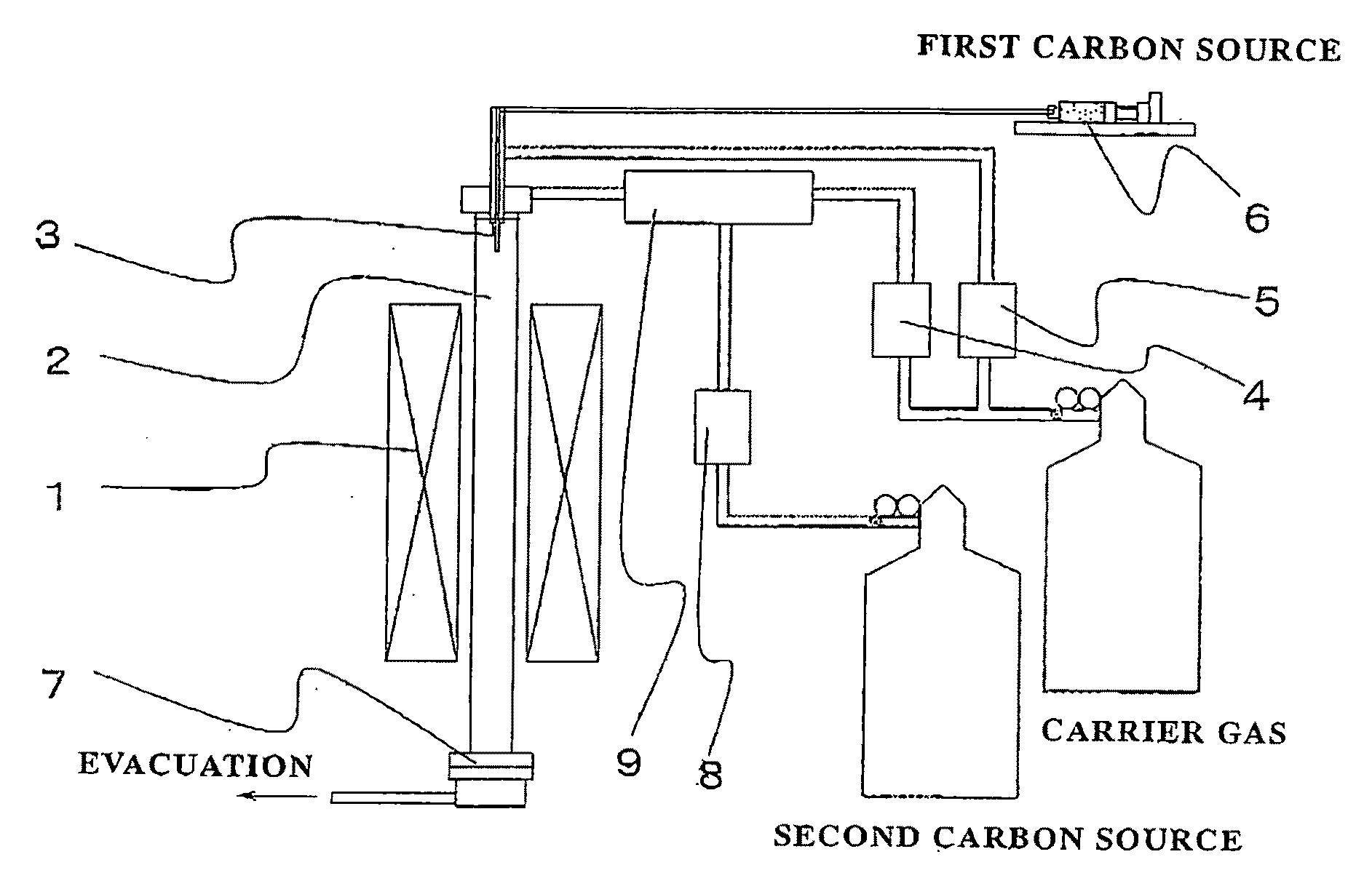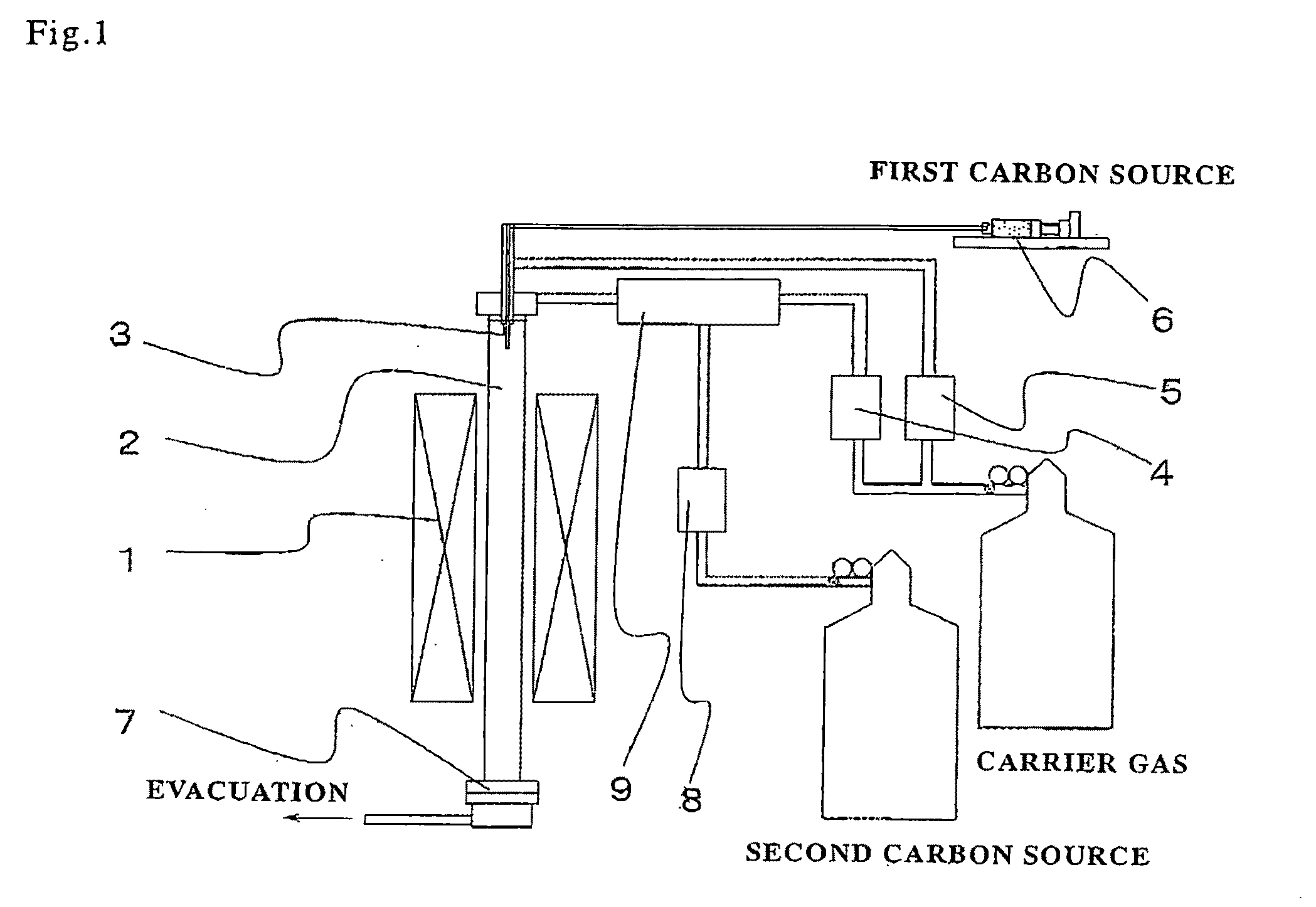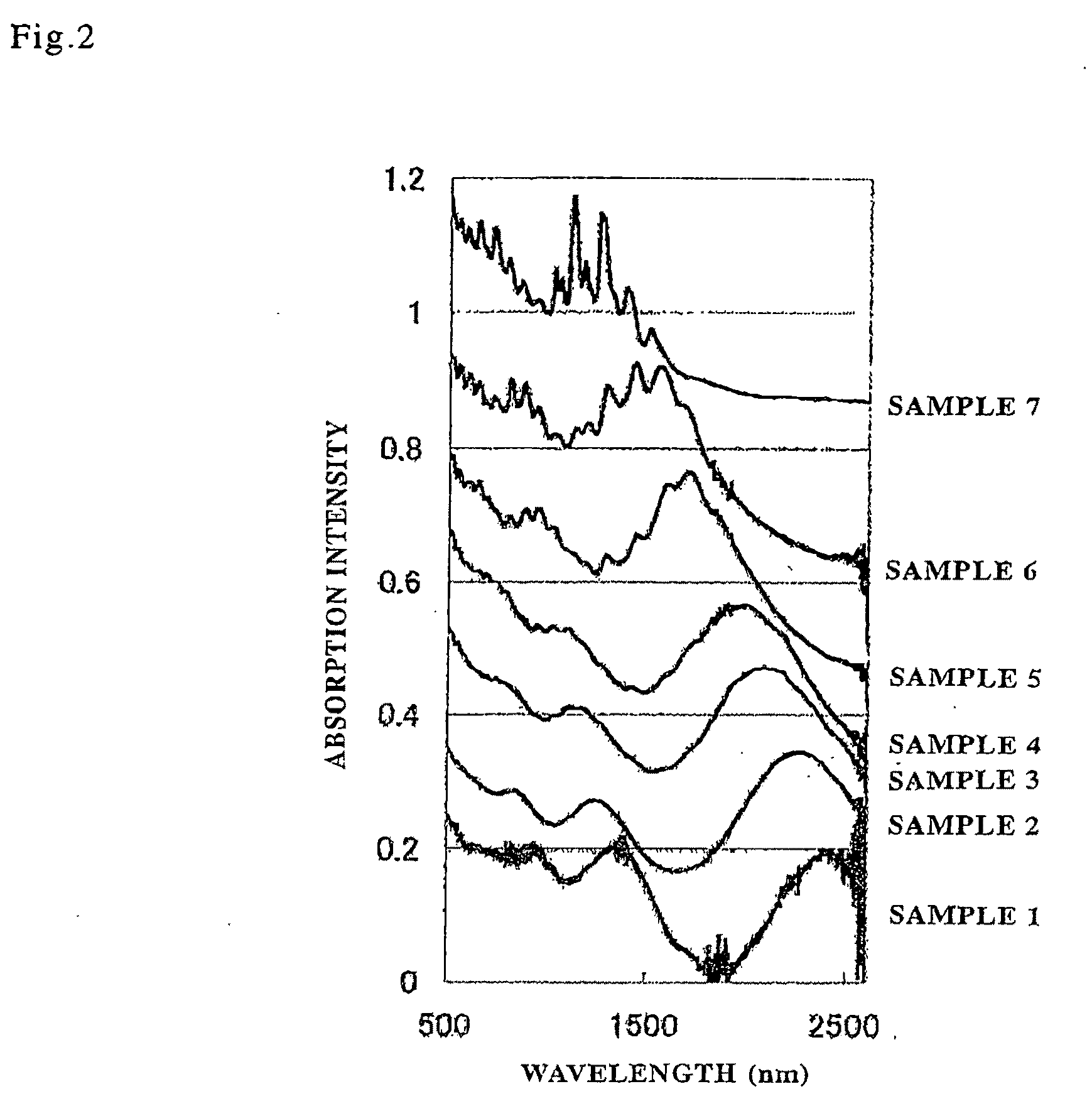Single-Walled Carbon Nanotubes, Carbon Fiber Aggregate Containing the Single-Walled Carbon Nanotubes, and Method for Producing Those
a single-walled carbon nanotube and carbon fiber technology, applied in the field of single-walled carbon nanotubes, carbon fiber aggregates containing the same, and a method for producing those, can solve the problems of high cost, difficult to precisely control a diameter range of less than, and inability to obtain single-walled carbon nanotubes with such uniformity and high purity, and achieve high purity, high quality, and high strength.
- Summary
- Abstract
- Description
- Claims
- Application Information
AI Technical Summary
Benefits of technology
Problems solved by technology
Method used
Image
Examples
example 1
[0079]A single-walled carbon nanotube of the present invention was produced using a vertical single-walled carbon nanotube production apparatus as shown in FIG. 1.
[0080]The apparatus is constituted of a 4 kW electric furnace 1, a mullite reaction tube 2 having an inner diameter of 5.0 cm and an outer diameter of 5.5 cm, a spray nozzle 3, a mass flow controller of first carrier gas 4, a mass flow controller of second carrier gas 5, a microfeeder 6, a recovery filter 7, a mass flow controller of second carbon source 8 and a gas mixer column 9.
[0081]A raw material liquid having a mixing ratio of decalin as a first carbon source:ferrocene as an organic transition metal compound:thiophene as an organic sulfur compound of 100:4:2 in weight ratio was stored in the microfeeder 6. On the other hand, ethylene was used as a second carbon source, and its flow rate was controlled through the second carbon flow meter 8 and the gas mixer 9.
[0082]Using hydrogen having a flow rate of 7 liters / min as...
example 2
[0085]Experiment was conducted in the same manner as in Example 1 except that the second carbon source flow rate was changed to 5.0 sccm and the reaction time was changed to 1 hour. The product thus obtained is used as Sample 2.
[0086]The yield was 19.5 mg. As a result of estimating a diameter distribution of a single-walled carbon nanotube in the same manner as in Example 1, peak at 2,285 nm was observed as shown in FIG. 2. This corresponds to that a diameter is 1.9 nm.
example 3
[0087]Experiment was conducted in the same manners as in Examples 1 and 2 except that the second carbon source flow rate was changed to 10.0 sccm. The product thus obtained is used as Sample 3.
[0088]The yield was 20.4 mg. As a result of estimating a diameter distribution of a single-walled carbon nanotube in the same manner as in Example 1, peak at 2,120 nm was observed as shown in FIG. 2. This corresponds to that a diameter is 1.7 nm.
[0089]It is seen from the results of Examples 2 and 3 that the diameter of the single-walled carbon nanotubes produced is 0.1 to 0.2 nm smaller than that of Example 1. This means that the diameter of a single-walled carbon nanotube can precisely be controlled with about 0.1 nm increments by appropriately controlling the second carbon source flow rate.
PUM
| Property | Measurement | Unit |
|---|---|---|
| diameter | aaaaa | aaaaa |
| diameter | aaaaa | aaaaa |
| diameter | aaaaa | aaaaa |
Abstract
Description
Claims
Application Information
 Login to View More
Login to View More - R&D
- Intellectual Property
- Life Sciences
- Materials
- Tech Scout
- Unparalleled Data Quality
- Higher Quality Content
- 60% Fewer Hallucinations
Browse by: Latest US Patents, China's latest patents, Technical Efficacy Thesaurus, Application Domain, Technology Topic, Popular Technical Reports.
© 2025 PatSnap. All rights reserved.Legal|Privacy policy|Modern Slavery Act Transparency Statement|Sitemap|About US| Contact US: help@patsnap.com



